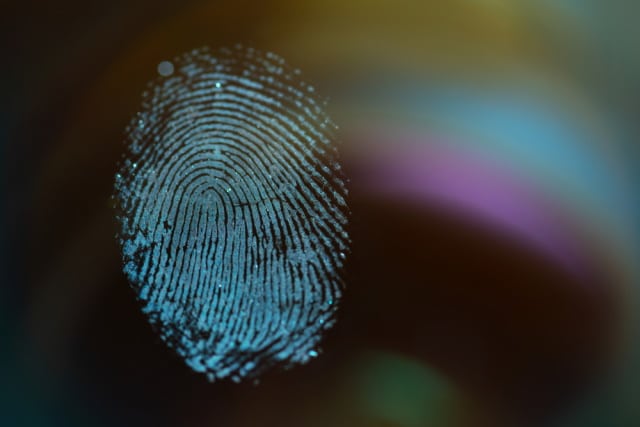Three industries benefiting from biometrics to fight COVID-19

The COVID-19 pandemic has accelerated the adoption of biometric technology across industries. From touchless payments at shops and restaurants to reduce the use of cash transactions to biometric-based contact tracing efforts, virtually every industry has had to readapt to meet the shift in customer and regulatory requirements.
The widespread adoption of biometrics was already underway when the coronavirus began to spread in early 2020. Now, companies are moving ahead with the installation of this technology to offer better safety, security, and efficiency to their customers. These three industries, in particular, are well-suite to see their operations advance as a result of biometric adoption.
Airlines
The global pandemic has caused an existential crisis in the airline industry, with commercial flights down 62 percent compared to 2019 levels. Even as countries begin to lift travel restrictions, the matter of safety remains a key hurdle. Airports bring citizens from all around the world together into a single building -- smart solutions to reduce the spread of a transmissible virus are therefore the highest priority.
Alongside standard methods such as face masks and hand sanitizer stations, contactless transactions have become a necessity for any airport or airline dedicated to meeting the safety needs of passengers. There’s simply too much risk involved with having each passenger interact with a touchscreen terminal to print a physical boarding pass, which will then be handed to several officials and security agents on the way to the gate.
Facial recognition technology allows travelers to handle these necessary steps without requiring physical contact that could potentially spread the virus. For example, touch screens can be replaced with no-contact facial scanners, allowing customers to check and receive an e-boarding pass while maintaining social distancing. Rather than handing over physical documents at every security or boarding checkpoint, the e-boarding pass and related smartphone apps can be used to prove identity and facilitate the check-in, security screening, and boarding process. Biometrics add not only an extra level of health safety, but also expedite screening, getting passengers to their gate much faster than before.
The International Air Transport Association (IATA) has already recognized the need for a more seamless travel experience, in order to reduce wait times while maintaining airport efficiency. Their One ID program utilizes biometric technology to reduce or eliminate the need for manual ID checks, airport queuing, and touch-based check-ins. Programs like these have the dual benefit of improving the overall airport experience while combating the spread of the coronavirus. Moreover, this technology can be leveraged to support contact tracing in nations that have the infrastructure to undertake such efforts, ensuring a level of trust necessary to start flying once again.
Finance
Mobile banking applications are nothing new in the financial sector, however, the suite of digital services available to consumers must increase -- particularly since two billion people worldwide have no bank account at all. Customers with accounts are increasingly reluctant to visit their bank in-person for even the most vital services, preferring to maintain their socially-distanced safety, as well as comply with any lockdown measures in place. In light of all this, banks around the world are actually encouraging customers to limit in-person visits.
In lieu of face-to-face transactions, these financial institutions are expanding their range of digital offerings. Until recently, identity verification represented a key limitation. When a customer enters a bank, a teller can confirm they are in fact the account holder by checking a certified ID, such as a driver’s license or passport.
This verification system can be improved. Digital facial verification via a smartphone’s camera is more accurate than human identification. What’s more, artificial intelligence can identify when another person lays eyes on the screen, instantly blurring the display to ensure personal information remains hidden when needed.
Offering a full suite of banking services via a digital biometric-enabled app doesn’t just keep current customers up-to-date with the latest offerings. Prior to COVID-19, individuals with disabilities, social anxiety, or limited awareness of banking services were unable or unwilling to start and maintain an account with their local bank. By providing a full range of services accessible from the customer’s home, these digital offerings can securely reproduce in-store offerings, while maintaining the regulation requirements via liveness checks and digital facial recognition.
Public Sector
The coronavirus has upended the financial coffers of governments throughout the world. Cities, states, and federal agencies are pumping billions of dollars into their economies in the form of financial relief for business owners, furloughed employees, and the unemployed.
The population of relief-seekers is substantial. In one three-week period, 15 million Americans filed for unemployment benefits, with many more seeking access to loans, grants, and other windfalls in order to stay afloat. Many of these individuals would traditionally be required to visit local offices in order to file applications and receive guidance on both short and long-term planning. However, reducing the number of large gatherings is of the utmost importance in lowering the infection rate.
Typically, citizens can register to receive benefits online, but must visit a local office in order to confirm their identity. This is simply untenable for immunosuppressed populations, many of whom are already receiving disability benefits or other forms of support. Moreover, single mothers and people living with elderly relatives wisely do not wish to put themselves or their loved ones at risk.
To prevent fraud and provide aid to the people who need it, states can view COVID-19 as the catalyst needed to bring biometric identification technology into their standard slate of resources. With a robust and secure system in place, states will be better equipped to meet the challenge of our social distance era, and the changes that are sure to come during and beyond the COVID-19 pandemic.
Image credit: trambler58 / Shutterstock
Bill Dumont 1s Director of Sales at Innovatrics. He has been a senior executive in the biometrics industry for many years, having run worldwide sales organizations like Crossmatch and M2SYS. He is currently responsible for North American operations of Innovatrics. Prior to becoming involved in biometrics, Bill ran international and global sales teams in the telecom sector.
1s Director of Sales at Innovatrics. He has been a senior executive in the biometrics industry for many years, having run worldwide sales organizations like Crossmatch and M2SYS. He is currently responsible for North American operations of Innovatrics. Prior to becoming involved in biometrics, Bill ran international and global sales teams in the telecom sector.